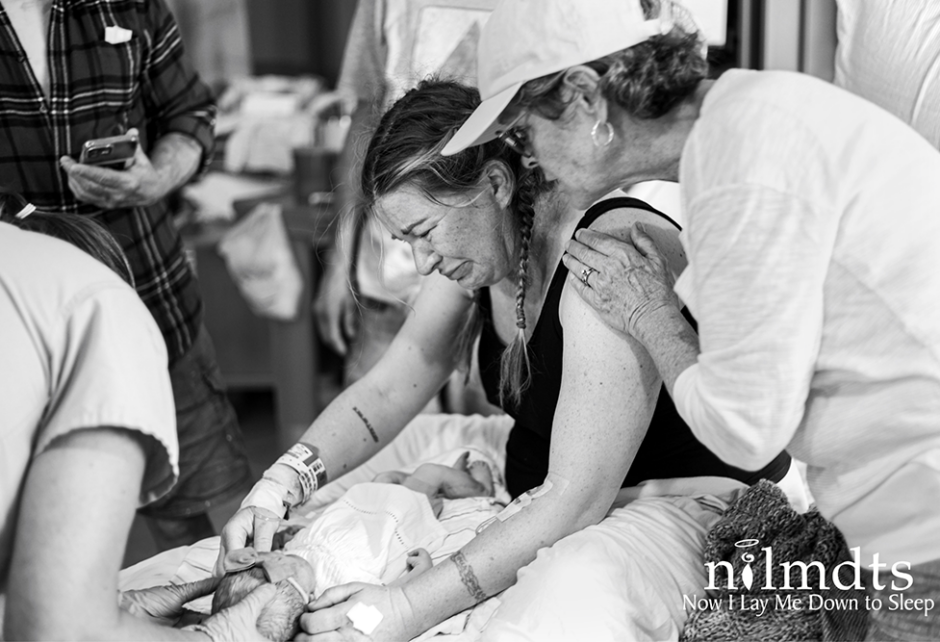
What Black Women Should Know About Their Maternal Health
Written by Dr. Joy Cooper
Photography by Maria Del Rio
April 11-17 marks Black Maternal Health Week—a time to amplify the voices of Black mothers and healthcare providers and highlight issues within the Black community as it pertains to the health of women and children. Many of us know the dismal U.S. maternal mortality statistics, with American women more likely to die from pregnancy and childbirth related issues than in any other “developed” country. When it comes to Black women, the stats are even more sobering. Depending on where she lives in the U.S., a Black woman is anywhere from 2 1/2 more times to 12 times more likely to die in childbirth compared to a white woman. These numbers aren’t only horrific, they’re also utterly inexcusable and none of us can sit by idly as the crisis continues. To shed more light on the issue and to educate Black women on improving their outcomes, Dr. Joy Cooper, co-founder of Oakland-based Culture Care and non-profit Daughters of the Diaspora, provides advice from preconception to pregnancy to postpartum, below.
As an Obstetrician-Gynecologist who has worked mostly in urban, Black female-dominated practices, there are certain hurdles that I have personally walked patients over. I am sharing some of those here. While they may seem scary, being empowered with information is the best prevention, so I urge you to take heed and also share with the Black women in your lives.
Preconception:
Find The Right Healthcare Provider.
One of the best things you can do before you get pregnant, besides prenatal vitamins, is making sure you select a healthcare provider team you trust. It does not have to be one person, but different providers with different expertise. You want to have conversations with them telling them your goals and desires for childbearing. With all of the talk about Black maternal mortality, I always encourage Black women to at least have one Black provider on their team. Black doctors have been proven to improve outcomes for Black patients, but if you cannot find one of those, it is also great to have a Black doula or midwife, which can be found through a simple Google search. Doulas are great because they also transition you into motherhood beyond the delivery room and into the postpartum period. Doulas can help you find popular midwives or physicians and can help you navigate birth centers vs. hospital vs. home births. Should you choose to deliver in the hospital, it is okay to ask directly about what the providers know about U.S. health care disparities and what their organization is doing to combat this. If we do not demand more from our providers, no one will grow.
Conception:
The World Health Organization deems fertility every woman’s right. This means that no matter who you are or how many children you have or how old you are, you have a right to try. Never let anyone discourage you about bringing life into this world. Black women typically do have higher rates of infertility in the United States and are more likely to have damaged fallopian tubes causing their infertility. This means that if you try to get pregnant consistently for 12 months and do not succeed, you should seek help. If you are over the age of 35 and try to conceive consistently for 6 months and do not succeed, you should seek help. Black women typically take longer to seek infertility treatment, so hopefully this empowers you to know when is the right time to get the help you need.
Pregnancy:
There are so many phases of pregnancy, so I will discuss some key things that affect different trimesters.
First Trimester: Ectopic Pregnancy.
The same damaged fallopian tubes that I discussed in the conception portion can also cause a complication called ectopic pregnancy, which is also more common among Black women. This is when fertilization of the egg occurs in the fallopian tube, which is normal, but does not make it back to the uterus to develop. A tubal pregnancy can be dangerous and life threatening. That is why it is important to have early prenatal care. As soon as you miss a period and have a positive pregnancy test, you should schedule a visit with a provider so that you can confirm that the pregnancy is in the right place. If you have severe pain and you have not had an ultrasound, that is a reason to go to the doctor or emergency room, because tubal pregnancies can rupture and cause internal bleeding. The good news is that if you seek help early, you can take medications to fix the pregnancy and prevent surgery. (Editor’s Note: For a first-hand account of an ectopic pregnancy, read our profile on Kai Avent-deLeon).
Second Trimester: Preeclampsia.
After 20 weeks of pregnancy, women can develop elevated blood pressures and abnormalities in labs and symptoms like headache or vision changes that point to a diagnosis called preeclampsia. This is a very common diagnosis among Black women. Sometimes when preeclampsia happens before 24 weeks, it may require termination of the pregnancy to save the mom. Many moms deliver early, before 37 weeks, because of this diagnosis and it is a leading cause of preterm birth among Black women. For this reason, I encourage most Black women to discuss with their providers if a baby Aspirin, which can prevent preterm preeclampsia, should be prescribed for them. Often times, other risk factors like obesity, a history of preeclampsia in a prior pregnancy, and diabetes could be reasons to take baby Aspirin as they are associated with an increased risk of preeclampsia.
Third Trimester: Delivery.
This is when all of the work that was advised in the preconception portion comes together. If you have a good team around you, although things can go unexpectedly, you will still have a great experience. The decisions and choices you make in preconception and first trimester set you up for a safe delivery. Be sure to determine early on who you want in your delivery room beyond your birth worker team. That will help you exercise boundaries that are necessary for motherhood.
Postpartum:
Mental Health & Support.
Support is the key to your mental health. Just like I advised you to decide who will be in your delivery room, you need to decide who will support you postpartum. Ask for help. Lactation specialist extraordinaire Jabina Coleman coined the phrase, “Everybody wants to hold the baby, but who will hold the mother?” That is the mindset you should use to build your support team. The people who will help you sleep and mind the baby when you need to run errands are the really supportive friends. It is not just about taking selfies with a newborn; it is about supporting your needs and concerns. A doula can also help with supporting you, along with a lactation specialist. The more people you can strategically surround yourself with, the better your mental health will be. If you feel like you cannot concentrate or sleep even when the baby is asleep, you may need medical attention to rule out postpartum depression. Lastly, exercise! You can always walk with your baby; it helps them sleep.
Find Community With Other Black Mothers.
Some hospitals are offering centering groups for pregnant patients and some even offer Black centering groups. This is an excellent way to do prenatal care, that has been proven to have great outcomes for moms. It is also a way to have a tribe of moms after you deliver. Also be sure to look at online forums for Black mothers to look for ideas about motherhood essentials—you may also find your community online.
If You’re Pregnant or Not:
Advocate For Yourself!
Whether you are pregnant or not, the most important thing that any Black woman can do for herself is advocate for herself when interacting with the healthcare system. The best tips I have are below:
1. Stay ready, so you don’t have to get ready.
Come to every visit prepared. Have notes written on paper or on your phone.
Providers pay better attention when they know you are serious about your care.
2. Call for backup.
If you are feeling sick, bring someone with you who can advocate for you if you are too weak.
I always think Black women should show someone cares about them, so that they are not easily dismissed.
If you know someone in the healthcare field who can talk to the team, use them.
3. Switch!
If you do not like how a provider is treating you, switch to someone else. This is your body and your health. Don’t settle!
Only do this if it is safe to do so. If you are in the hospital, it may be difficult to switch to another hospital and unsafe. You can always ask for another provider or nurse.
Happy Black Maternal Health Week! I hope this motivates you to live your best life whether you are a current or future mother or not. Share this knowledge with your friends and family. That is how we will keep each other safe!

Dr. Joy Cooper (right) with her Daughters of the Diaspora co-founder.
For more on Dr. Joy Cooper, be sure to follow her on Instagram, and check out her two inspiring companies that give vital support to Black women and girls—Culture Care and Daughters of the Diaspora.
For more on the topic of maternal health, check out Latham Thomas’ essay on The Birth Of My Son + The Birth Of A Doula, our Q&A with Christy Turlington of Every Mother Counts, a preview the EMC film Giving Birth In America, and a guide to Preparing For Postpartum Depression.
Share this story



